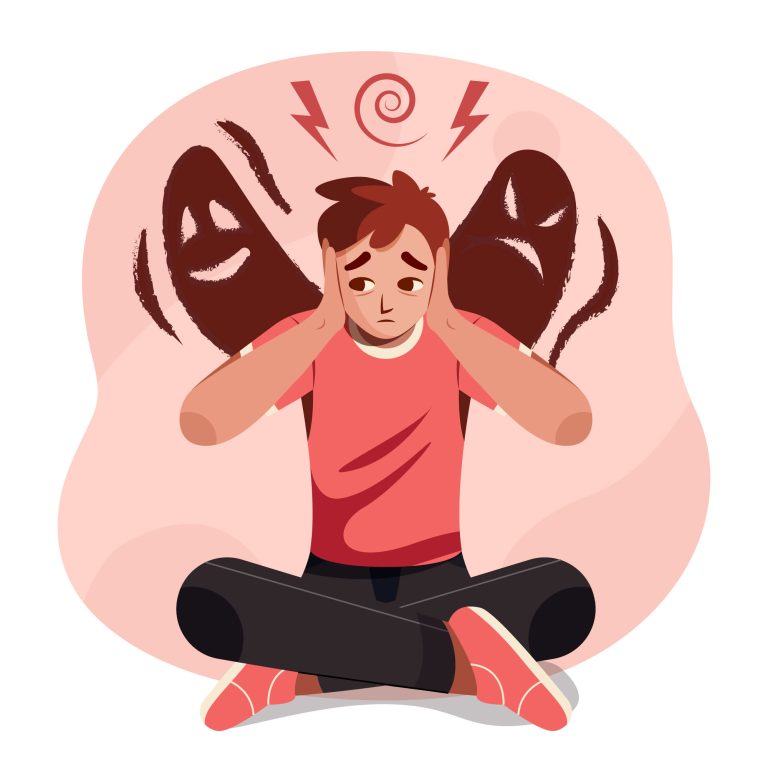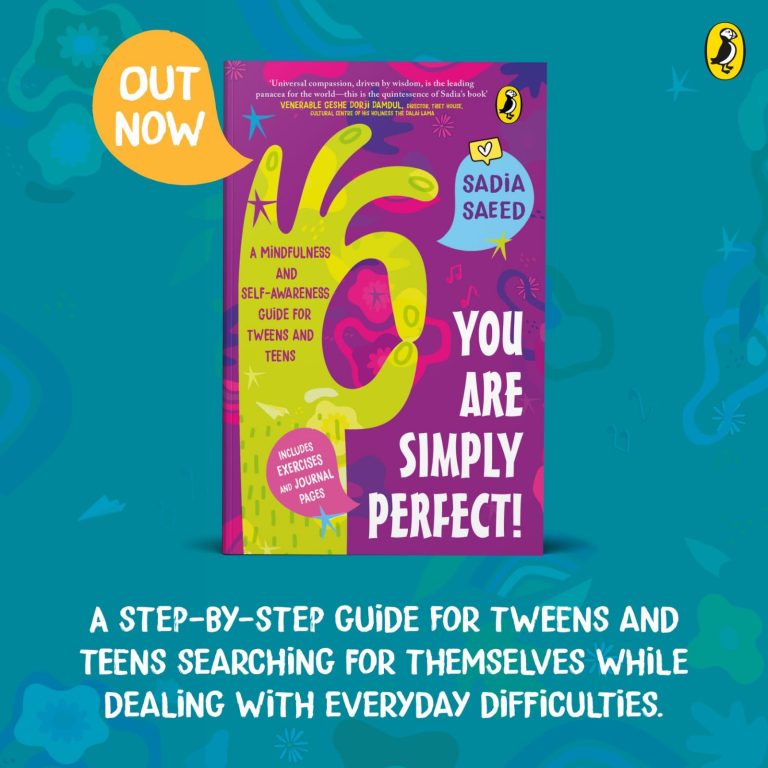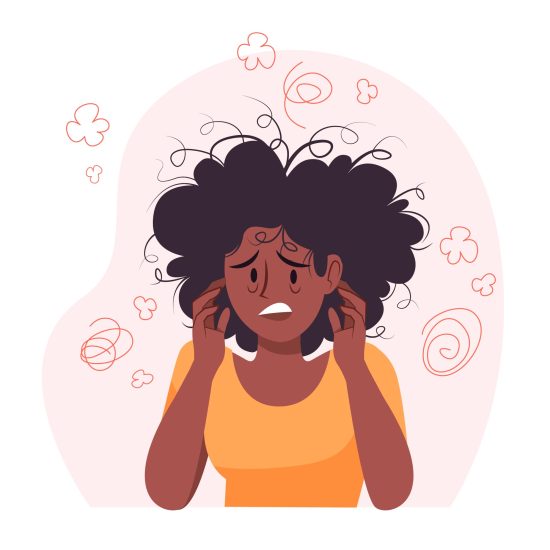
Adolescence is a time of many shifts, both in the mind and the body. It is a transformative period, where there is a growing curiosity about oneself and the people around them.
Teenage certainly isn’t a smooth period in one’s life. It is a time when one invests time into self-exploration and learns more about how and where they fit in. During this phase, with a myriad of changes, it is quite natural to face stress and worry over what could happen, and whether we would be accepted by everyone.
While many emphasize on the significance of having a healthy childhood, people tend to undermine the relevance of being a happy, well-adjusted teen.
The teenager in this stage, grapples with the many changes happening within and around them. It is a time where they try to fit in and find a niche for themselves. Adding to this, the teenagers of the present world also have the added challenge of maintaining their presence in an online, virtual world.
Thus, the teenagers today have to not just balance the challenges of growing up and accepting change, they also have to learn to navigate through the standards and norms of a virtual world as well. Balancing two worlds can be difficult, and therefore, acknowledging and understanding the significance of teenage mental health becomes important.
The Changing Landscape Of Teen Mental Health
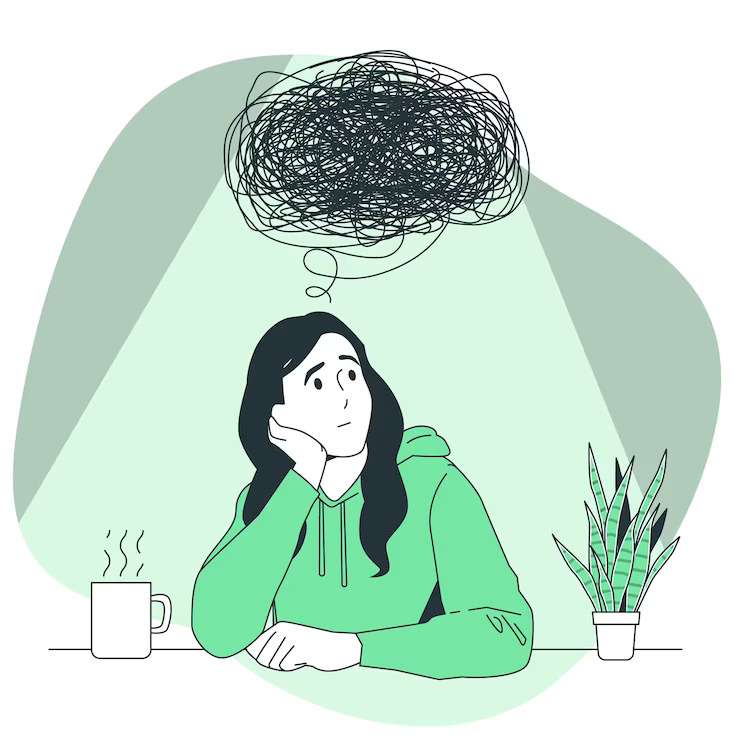
The world as we now know it, is a product of the many significant changes and developments that have occurred only in the recent years. Due to advancements in technology, we can now connect to people across the globe with just a click of a button. Teeangers these days enjoy a plethora of options to connect with their peers without any hassle, over the internet.
But can these virtual interactions replicate actual, human interactions?
Ironically, there has been a surge in mental health disorders, loneliness and discontentment among teenagers in recent years. As of 2021, around the world, approximately one in seven teenagers suffer from at least one mental health disorder.
There are also other factors contributing to the pervasive mental pressure that teenagers face these days. While social media and technology are recent developments, there are other aspects that contribute negatively to the modern-day teenager’s mental health.
For instance, unrealistic body standards, shifting family dynamics, navigating through changes in the mind and the body, and managing peer and academic pressure may trigger mental health issues in many teenagers.
Therefore, it becomes imperative to understand the issues and challenges faced by teens. We have highlighted some of the most common mental health challenges among teens below:
Common Mental Health Challenges Among Teens
1. Social Media and Peer Pressure: Social approval, social acceptance, and social validation are some of the most important needs of the adolescent. As teenagers, it is quite normal and common for them to dabble into and try out new things that would gain approval from their peers. Peer pressure is a very common phenomenon experienced by many teenagers. For a teenager, peer pressure puts them in a tricky situation. If their peers pressure them into doing something they don’t like or something that their parents don’t approve of, it creates guilt and shame within them.
Or, if they don’t give in to peer pressure, there is also a huge chance of being isolated or rejected by their peer group. For a teenager going through adolescence, social approval is of utmost importance.
As a result, many teenagers experience stress, confusion, guilt, or may indulge in habits that may not be good for them.
Social media, in essence, is designed to provide you with social validation through likes, comments, and sharing just the happy, positive moments of your life. However, many teenagers use social media to base their self-worth on the numbers on social media, leading to poorer mental health.
Social media tends to only show a filtered version of life, and it shows only what others want you to see. This creates a warped form of reality.
“They have it better than me,” is something teenagers find themselves saying quite often. Many teens may find themselves constantly comparing themselves and their lives to what they see online.
While social media isn’t the sole reason for teenagers’ poor mental health, the excessive and mindless usage of it can definitely create low self-worth among teenagers and can lead to a multitude of mental health concerns like anxiety, depression, or substance use.
2. Academic Pressure and Performance Stress: Adolescence is one of the most turbulent and transformative periods of an individual’s life. During this stage, many teens begin to ponder over the question, “What next?”
Teenagers use this period to figure out their careers. This decision-making process can be uncomfortable, stressful, and daunting. There is a lot of pressure from oneself and also the family to choose the right field of study to ensure a secure career.
And to choose the right field of study, the teen goes through immense academic pressure. Parents, and many of the grown-ups around the teen, constantly remind them of how important it is to score and perform well academically.
This causes the teen to set high expectations for themselves, thus, creating anxiety. Additionally, the competitive nature of education also causes the teen to constantly doubt themselves and compare their performance to others, creating more performance anxiety, stress, depression, procrastination, and self-doubt.
3. Digital Dependency and Screen Time: This is related to the excessive social media usage among teenagers. With the term “doom-scrolling” gaining popularity, it is becoming more apparent that everyone, including teenagers, are using their screens excessively.
Excessive screen dependency can lead to using social media and other mediums like binge-watching content online, gaming, and other means, to numb or suppress emotions. One of the main characteristics of adolescence is attaining emotional maturity and exploring various negative emotions that come up like sadness, angst, and irritability.
When there is an over dependence on the screens, teens do not learn how to sit with their feelings or actually feel them, leading to emotional numbing. This can impact how they deal with difficult situations in the present, as well as how they will manage challenges later in their lives as adults.
4. Body Image Issues and Self-Esteem: During adolescence, many teens may begin to experience a sudden change in their physical appearance. While some teenagers may feel well-adjusted with how they look, others tend to feel like they don’t look “good enough.”
This could probably be attributed to the unrealistic body standards fuelled by society and social media. As teens become more involved with the ever-changing trends, they find it difficult to keep up with them, creating dissatisfaction.
During this stage, it can be difficult for many teenagers to like what they see in the mirror. This deep dissatisfaction can often lead to low self-esteem, body-image issues, and eating disorders.
5. Family Dynamics and Interpersonal Relationships: There are also shifts in family dynamics and other relationships during adolescence. For instance, parents may begin to feel like their child is no longer obeying them or approaching them for advice. This can cause a strain in the parent-child relationship.
This is also the stage where the parent-child generation gap feels the most apparent. As the teen now tries on new trends, gives into peer pressure, or forms a different opinion from the parents, the parent starts to create more rules and boundaries for the teen.
This may cause more anger, frustration, conflict, and sometimes even rebellion towards the parent. Therefore, this stage can be quite challenging for both the parents and the teen as they are grappling with their shifting roles.
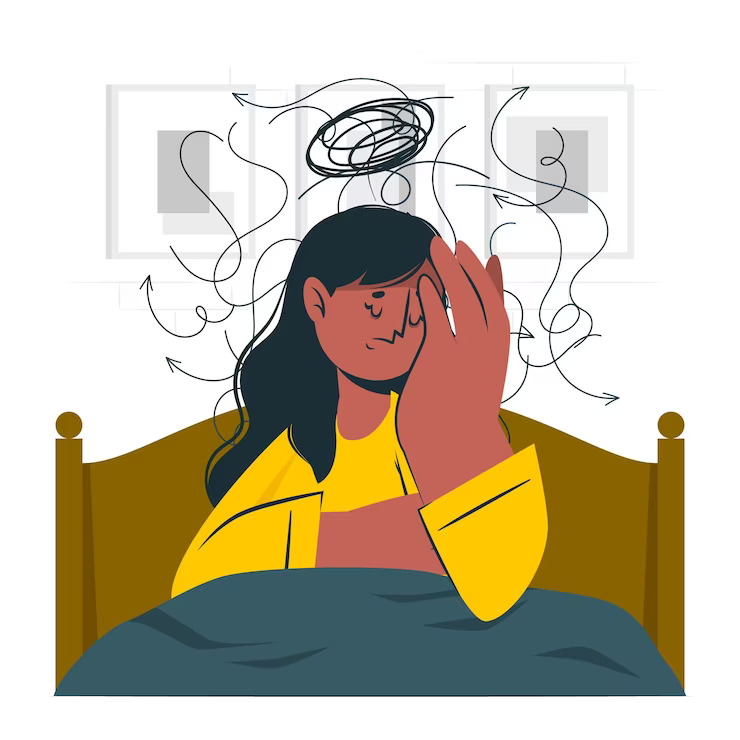
Being a teenager can be confusing and difficult.
Get the support you need to live a happier, healthier life with our online Teen Counseling services.
Empowering Teens for a Healthier Future

Teen mental health is a crucial topic that is under-represented and misunderstood. Many times, a teenager’s behaviour is often seen as just a phase or “just an act.” However, it could possibly be a sign that they could be struggling with their mental health. For the teenagers and parents reading this article, here are some ways to start building a healthier future for teenagers.
1. Talk to your teen: As parents, it can be uncomfortable to open up and speak with your child. Or you may find that your child has changed and there is some barrier that stands in your way of truly connecting with your child. However, separating yourself from your child by just being a “parent” who corrects the child, can only create further distance from them. Instead, try to talk to your child like a friend. Try to listen to what they like and share with them some of the fond memories or challenges you faced as a teenager. This instills hope in your child and can certainly help in them seeing you as not “just a parent,” but also a friend, confidant, and more importantly, a role model.
2. Incorporate Mindfulness: Mindfulness, simply put, is the practice of staying aware of the present moment, with compassion, and without any judgment. Sometimes, difficult situations can cause some uncomfortable emotions to arise. Mindfulness helps you to sit with these feelings and watch them, instead of reacting to it. For example, you really want to go to a friend’s party and your parents forbade you from going as it may get late when the party gets over. You may feel angry, frustrated, sad, and may also feel embarrassed as you are now unable to go to the party that you were excited to go to.
Mindfulness helps you take a pause and watch these feelings, instead of reacting to them. Instead of shutting yourself in the room, or arguing with your parents, you learn an alternate way to learn more about your emotions than reacting to them.
Dealing with emotions without being mindful of them is like trying to look into the bottom of a pond when the water is not still. Without mindfulness, you wouldn’t have the still, calm mind (like how the water should be) to look deep into your emotions. Having a mindful approach to your emotions can also contribute positively to your interpersonal relationships. This is because instead of reacting when certain uncomfortable emotions come up, you are choosing to slow down and respond instead.
We have compiled a free Mindfulness Resources Kit for Teenagers, which you can access by clicking here.
3. Spend more time outdoors: While it may be more convenient and entertaining to scroll through social media during freetime, it may do more harm than good. Research has consistently shown how mental health can be negatively impacted by excessive screen usage.
Instead, you can try opting for more outdoor activities. Spending time outdoors can decrease the stress levels in your body, improve mood, and sleep. You can also bring some movement to these activities, like doing yoga, swimming, or cycling, to enjoy the added benefits of exercise to your activities.
4. Consider speaking to a professional: Managing and processing your emotions can get complicated and it can feel like no one around you can truly understand what you are feeling. Therefore, it is always a good idea to consult a mental health professional.
A mental health professional, like a teenage counselor, can offer you counseling, which can be a great tool for you to learn communication skills, processing difficult emotions, and managing mental health issues.
Moving through adolescence is like sailing through a vast ocean without any idea where the nearest shore could be. Sometimes, there may be pleasant waves that move you gently to the sides, and there may also be the occasional tidal surges that take you by surprise.
As a teen, you may feel ashamed to ask for help from others. However, using these techniques and seeking help when needed, is like having a companion on the boat who knows the way to get you to the shore. A little help can certainly go a long way.
About the Author
This article was written by Parvathi Ganesan, Counselor at Inner Space. This post was consulted & approved by professional therapists practicing online therapy and counseling.
Ask a Therapist
If you are interested to know about any mental health topics, ‘Ask A Therapist’ is a platform for you to ask your questions related to Mental Health, Mindfulness & Emotional Well-Being to our team of qualified Therapists.


